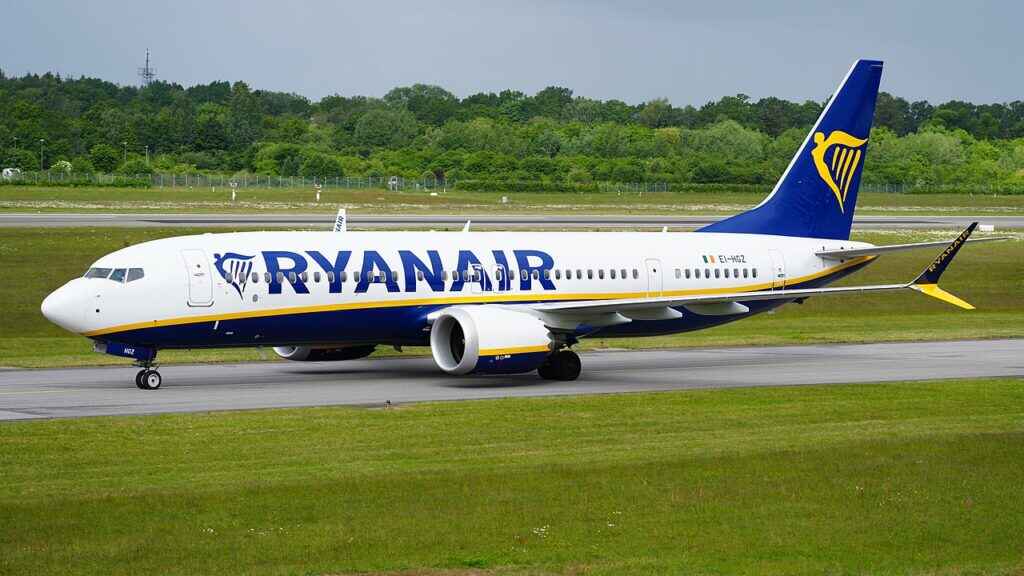Ryanair has sharply criticized the French government’s decision to raise the aviation tax, calling it “idiotic” and warning of serious harm to regional airports, tourism, and jobs. The airline announced on July 30, 2025, that it will stop flying from Brive, Bergerac, and Strasbourg, and will cut its winter capacity in France by 13%.
The new aviation tax, which took effect in March 2025, increased the “Solidarity Tax on Airline Tickets” for domestic and European flights from €2.63 to €7.40 per passenger. This is a 180% jump. For mid-haul flights, the tax doubled from €7.51 to €15. Long-haul flights now face a charge of €63 for economy and €180 for business class. Ryanair says these changes make France 🇫🇷 less attractive for airlines and travelers compared to countries like Ireland 🇮🇪, Spain 🇪🇸, and Poland 🇵🇱, which do not have such taxes.

Ryanair’s Chief Commercial Officer, Jason McGuinness, stated, “This tax makes France less competitive compared to other EU countries.” The airline has already pulled out of Vatry airport earlier in 2025 and now plans to remove 25 routes and 750,000 seats for the winter season. Ryanair warns this will have a “severe impact on regional connectivity, tourism and local employment.” The airline has also threatened to move its investments to other European countries unless the tax is reversed. However, Ryanair has offered to invest $2.5 billion, add 25 new aircraft, double its French traffic to over 30 million passengers a year, and create 750 new jobs if the French government drops the tax hike.
The French government has responded by promising not to raise aviation taxes further in the near future, but it has not agreed to reverse the March 2025 increase. Industry groups and regional airports warn that the higher tax will make many routes unprofitable, especially for smaller airports, and could hurt France’s 🇫🇷 position as a top travel destination.
Key impacts of the aviation tax increase:
– Higher ticket prices for all passengers flying from France 🇫🇷, especially on low-cost carriers like Ryanair.
– Regional airports lose flights and jobs, with immediate effects on local economies.
– Tourism-dependent regions face fewer visitors and less income.
– Airlines may shift operations to countries with lower or no aviation taxes, such as Sweden 🇸🇪, Hungary 🇭🇺, and Italy 🇮🇹.
The French government says the tax helps fund environmental and social programs, but critics argue it hurts economic recovery and regional growth. As reported by VisaVerge.com, sudden policy changes like this can disrupt airline business models, especially for low-cost carriers that rely on high passenger numbers and low prices.
For now, there is no sign that the French government will reverse the tax hike, despite Ryanair’s lobbying and threats of more cuts. If the policy stays, more airlines may reduce flights, and regional airports could suffer even greater losses.
For official updates and policy documents, readers can visit the French Civil Aviation Authority (DGAC) website. Travelers and industry workers should watch for further announcements and consider how these changes may affect their plans or jobs.
Learn Today
Aviation Tax → A government-imposed fee on airline tickets to fund environmental or social programs.
Solidarity Tax on Airline Tickets → France’s specific tax on flight tickets, increased significantly in March 2025.
Regional Airports → Airports serving smaller cities or rural areas, often vulnerable to flight reductions.
Low-Cost Carrier → An airline offering cheaper tickets with fewer amenities, relying on high passenger volumes.
Capacity → The total number of seats airlines offer for sale on flights over a period.
This Article in a Nutshell
Ryanair sharply criticized France’s 2025 aviation tax hike, cutting flights from key airports and warning of job losses. The tax rise risks regional tourism and connectivity as the airline demands reversal or shifts investments elsewhere.
— By VisaVerge.com













